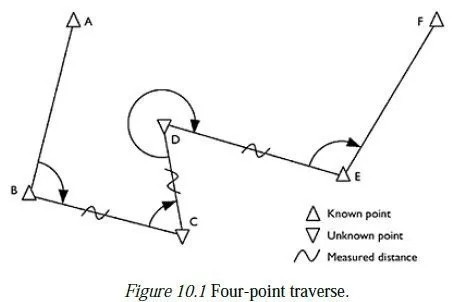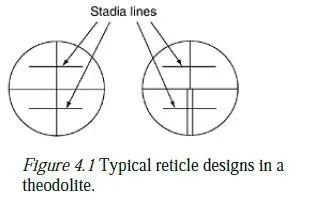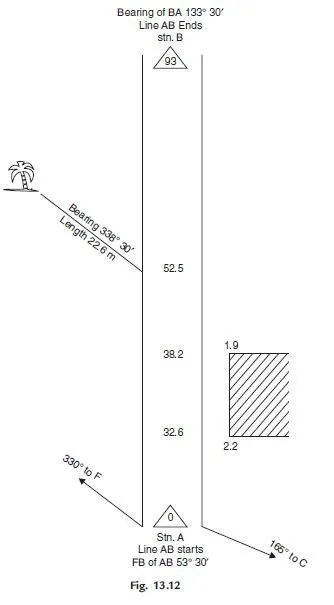To take a reading from a compass, the following temporary adjustments are required:
(i) Centring: The compass should be fixed to the stand and set over the station. To centre the compass legs of the tripod stand should be moved inward-outward or in a circumferential direction. To check centring plumb may be used or a pebble dropped from the centre of the compass.
(ii) Levelling: In compass survey perfect levelling is not necessary, but it should be sufficient to permit free suspension of magnetic needle. For checking levelling a bubble level is provided in many compasses. After centring bubble should be ensured in the middle of the circle provided for it in the level. If it is not within that circle, circumferential movements may be provided to the legs of tripod so that without disturbing centring the levelling is achieved.
(iii) Focussing the prism: In prismatic compass, to focus the prism on graduated circle, its attachment is slided up or down till the readings are clearly visible. There is no such requirement in surveyors compass.
The following steps are required for observing bearing of a line, say, AB:
(i) Centre the compass over A.
(ii) Level the compass.
(iii) Focus the prism, if prismatic compass is used.
(iv) Rotate the box till ranging rod at B is sighted through the line of sight.
(v) Bring the needle to rest using knob.
(vi) Take the reading and note it in the field book.
Care should be taken to see that the line of sight is not disturbed between the line of sighting the object and the time of reading the bearing.
1 thought on “Method of Using a Compass”
Comments are closed.




Oh i luv this site. It makes me feel alright during exams